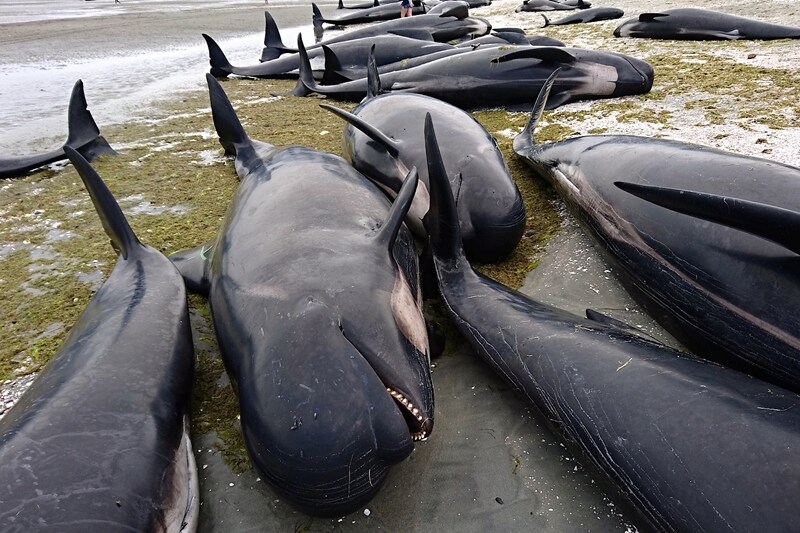-

In one of the largest whale stranding incidents, over 416 pointer whales where left struggling for their lives on New Zealand's Golden Bay on Thursday. According to Reuters, by the time volunteers reached the scene, 300 whales had already perished. The remaining 100 were tended to by the volunteers, who had to remain cautious about the struggling creatures' fins and tails, which can weigh almost 2,000 kilos. The doomed school had swum onto the shore on Thursday evening during the high tide, but when the tide receded they were left stranded. (Reuters)
-
Although a member of New Zealand's conservation department noticed the whales on Thursday evening, the government opted for a morning rescue mission. The department reasoned that in the dark, there was a chance of both volunteers and whales getting injured. (AP/PTI)
-
In the morning, people poured water on the whales and covered them in wet clothes to keep them cool. School children were also brought in to sing songs, which is supposed to calm down the fish. (Reuters)
-
Pointer whales have a tragic tendency to return to the shore, even after volunteers push them back into the water, in a bid to rejoin the remaining whales that are on the beach. This leads to them getting stranded over and over again. (Reuters)
-
Of the hundred surviving whales that were sent back to the ocean during this incident, over 50 returned and suffered the ordeal once more and got weaker in the process. (Reuters)
-
Golden Bay is a lethal spot for pilot whales. The muddy waters of the beach confuse the creatures and whale stranding is a common sight in the area. (Reuters)
-
New Zealand's largest whale stranding incident occured in 1985. At that time, 450 whales had swum onto the shore and the majority had perished. (Reuters)
-
Pilot whales are not an endangered species. (Reuters)